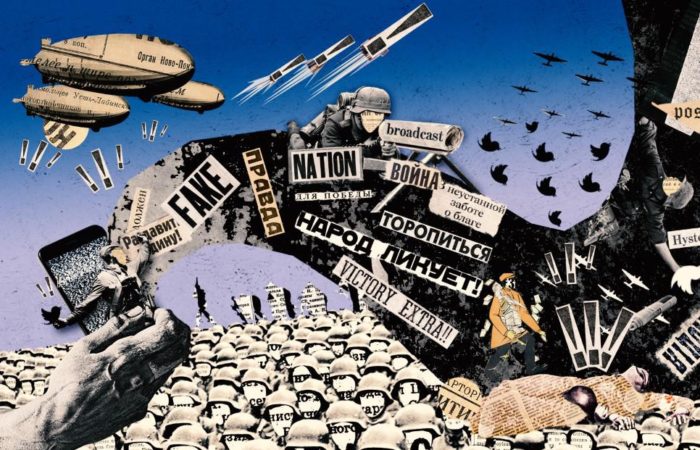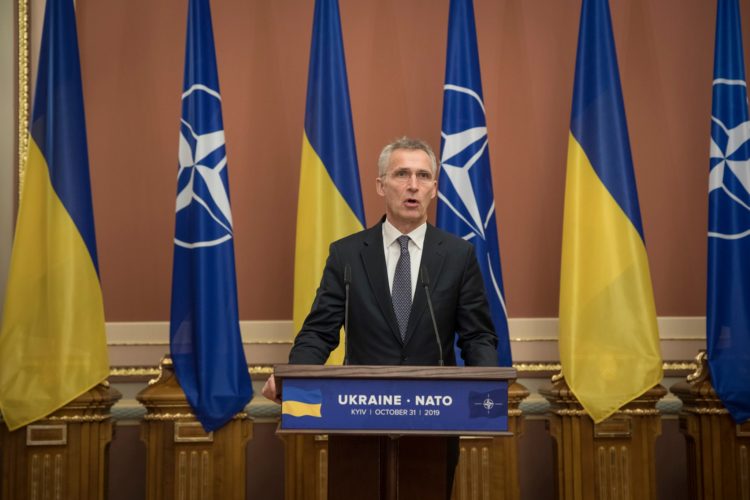Make no mistake: A (hypothetical) Ukrainian defeat would also be a Western defeat. It would establish a zone of permanent instability along the EU and NATO’s borders. It would bring Russian military power – including its ability to threaten European airspace - 1000 km closer to Berlin, Paris, and London. It would guarantee a migration crisis far bigger than we have experienced so far.
It would allow Russia to reconnect its defense industries to the Ukrainian “missing link”. Russia would establish control over the “breadbasket of Europe” and Ukraine’s immense gas, oil, and mineral resources. It would also turn the Black Sea into a Russian sea, only “contested” by one of its last European “partners”. Not least, it would be a Russian victory despite Western support for Ukraine. It will embolden an aggressive autocracy already at war with the West; a war the West is doing its best to deny.
Despite the huge flaws uncovered and recent Ukrainian triumphs, it is important not to underestimate Russia’s ability to reconstitute its military potential. Especially considering both Ukrainian and Western challenges. As Russian defeat cannot be taken for granted we must respond to Russian resolve: We must dig in and increase our joint efforts.
Russia is suffering from many fundamental shortcomings that cannot be fixed anytime soon. It will take generations to reform its military culture and poor leadership. Russian morale and motivation on the frontline will remain rock-bottom for months to come. It will remain unable to replace the modern weapons and elite units lost on the battlefield for years to come. The Russian defense industry is rendered unable to replace the expended precision-guided munition employed against Ukraine. Its logistic stockpiles will remain low and it will increasingly be using old tanks and artillery.
But Ukraine and the West are also suffering fundamental shortcomings of their own. Decades of underbudgeting, streamlining, and downsizing have left us low on stockpiles. The defense industries are still 1-2 years away from relieving the problem. The Ukrainian defense industry has been targeted by Russian missile and drone strikes during the last 8 months. As a result, the inflow of weapons and ammunition, and Ukrainian stockpiles has become increasingly smaller.
Additionally, being fundamentally dependent upon subsea cables and pipelines, the West is finding itself exposed to an increasing underwater threat.
- On 3 April 2021, a 9.5-ton submarine cable went missing from the Lofoten-Vesterålen Ocean Observatory (LoVe Ocean) in Northern Norway. The network was equipped with state-of-the-art equipment also capable of detecting submarines and other maritime activity.
- On 7 January 2022, Norway experienced another underwater disruption. One of two of what is the world’s northernmost fiberoptic subsea cables were cut. In addition to providing the settlement of Longyearbyen with internet broadband, the fiber optic cables serve the SvalSat park of more than 100 satellite antennas on a nearby mountain plateau. Its location halfway between mainland Norway and the North Pole gives the station a unique position to provide all-orbit support to operators of polar-orbiting satellites.
- On 27 September, powerful explosions destroyed the Nord Stream pipelines in the Baltic Sea. The blasts severed a critical energy link between Russia and Western Europe, although neither was actively transporting gas at the time — Russia had recently throttled back Nord Stream 1, citing technical issues, while Nord Stream 2 had not yet become fully operational.
Who is responsible for damaging subsea cables and pipelines will always be hard to prove. According to the Norwegian Intelligence Service:
“More than 97 percent of all traffic on the internet runs through subsea cables. Practically all Western countries today rely on infrastructure on the ocean floor for communications and for maintaining economic activity. It is extremely difficult to protect cables and other vital underwater installations, which are crucial to the oil and gas sector, for instance, against sabotage.
The global network of subsea cables has a built-in surplus capacity and backup solutions, but in the event of major damages and breakdowns, these solutions will not be able to handle the amount of information. A major breakdown of the subsea cable network would affect functions that are vital to society and complicate any form of international cooperation.”
Russia has, however, both the means, capacity, and motivation to threaten subsea cables and underwater installations like gas pipelines. Russia is after all engaged in a broader confrontation with the West (irrespectively of the West’s “pigheaded denial of the fact”).
So yes, in 2023 Russia will be waging war with an increasingly depleted, demotivated, and unqualified Armed Forces.
Its retreat from the Western Kherson and the upcoming winter might, however, give it time to prepare for the next phase of the war. Dnipro will temporarily stop further Ukrainian advances in the south. The winter will not only reduce the efficiency of UAVs' recognizance and satellite-based intelligence means but also turn the ground into mud making further ground assaults increasingly difficult. The winter is expected to be milder than normal, possibly denying Ukraine the opportunity to maneuver quickly over frozen ground.
They have, after all, vested the future of Russia in a war it cannot be allowed to win. Additionally, being an autocracy, its decision cycle is shorter and does not suffer the diversion of “50 national interests” and the need for a democratic accord.
So yes, in 2023 Russia will be waging war with an increasingly depleted, demotivated, and unqualified Armed Forces. But they will do so with an army of up to one million soldiers armed with old weapons, potentially – and this is the key point – meeting a Ukrainian Armed Forces still fighting for its right to exist while defending Euro-Atlantic security alone, with increasingly fewer weapons and ammunition, possibly still being denied modern western main battle tanks, sufficient artillery and HIMARS, combat aircraft, long-range strike capability and, still being denied access to the sea and, therefore, suffering economic strangulation.
Or not.
The West must dig in and increase its joint efforts. It must demonstrate a higher level of resolve. It must, not least, demonstrate military will and ability to defend Euro-Atlantic security and stability. The West must give Ukraine what it needs to be victorious, and before it is running out of weapons Ukraine can operate without extensive training, it must intervene.
Ironically, this will also stop the “tsunami of ripple effects” from the war.





